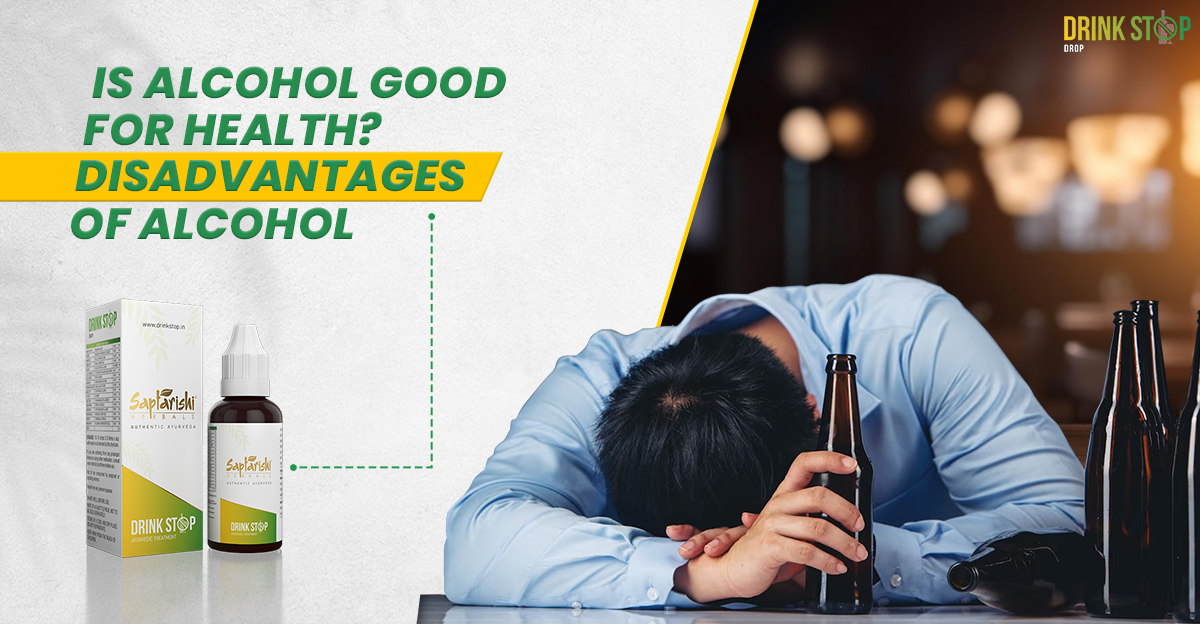
As Greek philosopher said centuries ago, “There is nothing permanent except change,” it’s more relevant in the context of human societies than in the animal world.Society has undergone drastic changes in terms of lifestyle, especially in choices of foods and drinks. In India, alcohol has become an inseparablepart of social gatheringslately. If you ask whether alcohol is good for health, it’s definite that the downsides of drinking alcohol overshadow any potentialgains.
There’s a belief that a judicious amount of alcohol may be beneficial to health. The antioxidants and anti-inflammatory compounds found in wineare stated to be good for the heart, but more studies are needed to prove the same. It’s advantageous to obtain these compounds from any other source like grapes or grape juice.
According to a WHO press release, there is no good or bad level of alcohol consumption. The first drop of alcohol you take starts affecting your health badly.
Impact on Mind: One of the major drawbacks of alcohol intake is its effect on mental health. If taken excessively, alcohol impacts the central nervous system, causing anxiety and depression. It is a strong depressant and may worsen the mental condition, at times leading to the risk of suicide.
Effects on the Body: Excess intake of alcohol due to high levels of toxicitymay damage body organs including the heart, brain, liver, kidneys, and pancreas. Other than impaired mental conditions, compulsive drinkers may suffer from severe inflammatory conditions like cirrhosis, pancreatitis, and esophageal cancer.
Influence on Social Behaviour: Excess alcohol intake slows down one’s thinking process and judgment leading to accidents, fights, falls, injuries, and even drowning.
Cause of Family Disputes: Alcohol may have an impact on personal relations. Drinking may lead to domestic violence, conflicts, divorce, and isolation. Legal expenses along with emotional trouble may have a long-standing setback in life.
Professional Setback: Drinking in excess steers to absenteeism, less productivity, allied illnesses, injuries, and sometimes loss of job.
Considering the above drawbacks, it’s clear that the merits of drinking alcohol even in moderation are very few, but usage of itis always risky. Drinking in moderation may not be too risky, but factors such as health conditions, family history, and age may be taken into consideration.
When one becomes addicted to alcohol, the sole way to recovery is through proper treatment. Alcoholism is not just a physical ailment; it affects mental and emotional health. The toxicity of alcohol disturbs the balance of bodily forces. Ayurveda suggests balancing these doshas with purification through panchakarma. Along with purification,changes in lifestyle, and food habits are recommended. Treatment with herbal remedies with herbs such as ashwagandha, Shatavari, and Brahmi reduces cravings, calms down the mind, and nurtures the body.
Drink Stop is an herbal anti-alcohol medicine, which comes in liquid form. It fuses with any food or beverage, as it is an essence without any color or taste.
Additionally, yoga and meditation are advocated to promote inner calm and peace, helping to stay away from addiction.
Finally, even if alcohol helps health in any manner, the drawbacks outweigh the benefits, specifically after seeing the effect on physical, mental, and social relations. Alcohol may seem tempting while socializing or relaxing, but the long-term use of it may be detrimental, and it would be good to evaluate the risks involved before going for the first sip. Keeping yourself away from any harmful addiction is the wisest choice for your physical, mental, and spiritual growth.